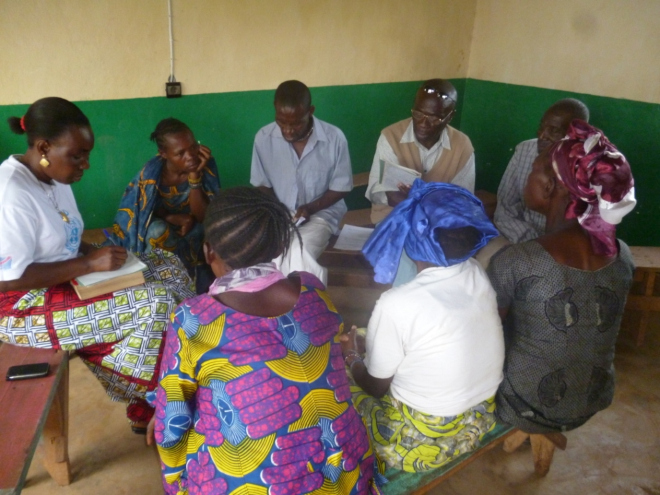Projects Developed by Families in Poverty

ATD Fourth World’s work in the Democratic Republic of the Congo began in 1997. This is when a Tapori children’s group formed. The first group was in the city of Bukavu and later another formed in Goma.
Leaving no one behind
Over time, others joined initiatives and projects based on the idea those Tapori boys and girls had: leave no one behind. Adults then organized themselves into “Families in Solidarity.” This group offers support for its members through pilot projects. Members also aim to meet and reach out to others in difficult situations.
ATD Fourth World ally in Bukavu
Emmanuel Mugisho is an ATD Fourth World ally in Bukavu. In the video below he presents ATD pilot projects in Democratic Republic of the Congo including those created by “Families in Solidarity.”


Play with YouTube
By clicking on the video you accept that YouTube drop its cookies on your browser.
Projects Developed by Families in Poverty
Text based on Emmanuel’s talk:
ATD Fourth World pilot projects in the Democratic Republic of the Congo, are projects that enable families in poverty to be seen as equals. For example in Bukavu, we created projects that the families themselves designed from the beginning. Because we were living through COVID-19, this was a difficult time. The families participated from start to finish. It was a project so people could support each other, and create income generating activities. Participation for the project was limited.
“Families in Solidarity”
Participants came from the “Families in Solidarity.” What touched us among these families were those who said, we know we live in extreme poverty, but among us, we also know there are people whose life is more difficult than ours. Maman Louise said,
“for all you have planned for me, I want it to be given to another who suffers more.”
Families know they have problems but they also know that there is hope. They will work so that their children can eat.
Health insurance
There have been really good results and we really supported the families. To start, families signed up for health insurance. In the Democratic Republic of the Congo, there’s a program with health centres, so that people can have 60% of health costs covered when a family member is ill. So the health insurance pays 60% of health costs. For us this is a great outcome. Because of this project, if families can enrol themselves or family members, it can greatly help them, as families often have health setbacks. For example, some say I’ll register my child at school, but then there is a health crisis that can upset things. For us registering families was a great success. Health issues don’t slow down their courage to confront their daily struggles.
Solidarity fund
With the solidarity fund families said, “we who benefited from pilot projects, we will try to put something into a solidarity fund. This fund will not be for us, but for others who live in extreme poverty and have been weakened by COVID-19. Everything this fund can do will help families who are left out, isolated, or forgotten, to start income generating activities.
Support groups
The families themselves created groups to share their knowledge and experiences. So that for example I can continue to succeed and I can share what I learn.
Other successes
How do I succeed? By remembering that those who are down, can restart by learning from other peoples’ experiences. A woman told us:
“Before I was not respected in my community. But today, from the work I have been able to do, I fixed up my house. At least now there are people who respect me for that.”
Another person told us:
“Today I was able to register all my children in school and no one can point fingers me for this.”
This person was someone who couldn’t enrol their children in school. This is something that really touched us. Seeing families themselves developing projects and then achieving their goals. This allows them to feel proud of who they are.

